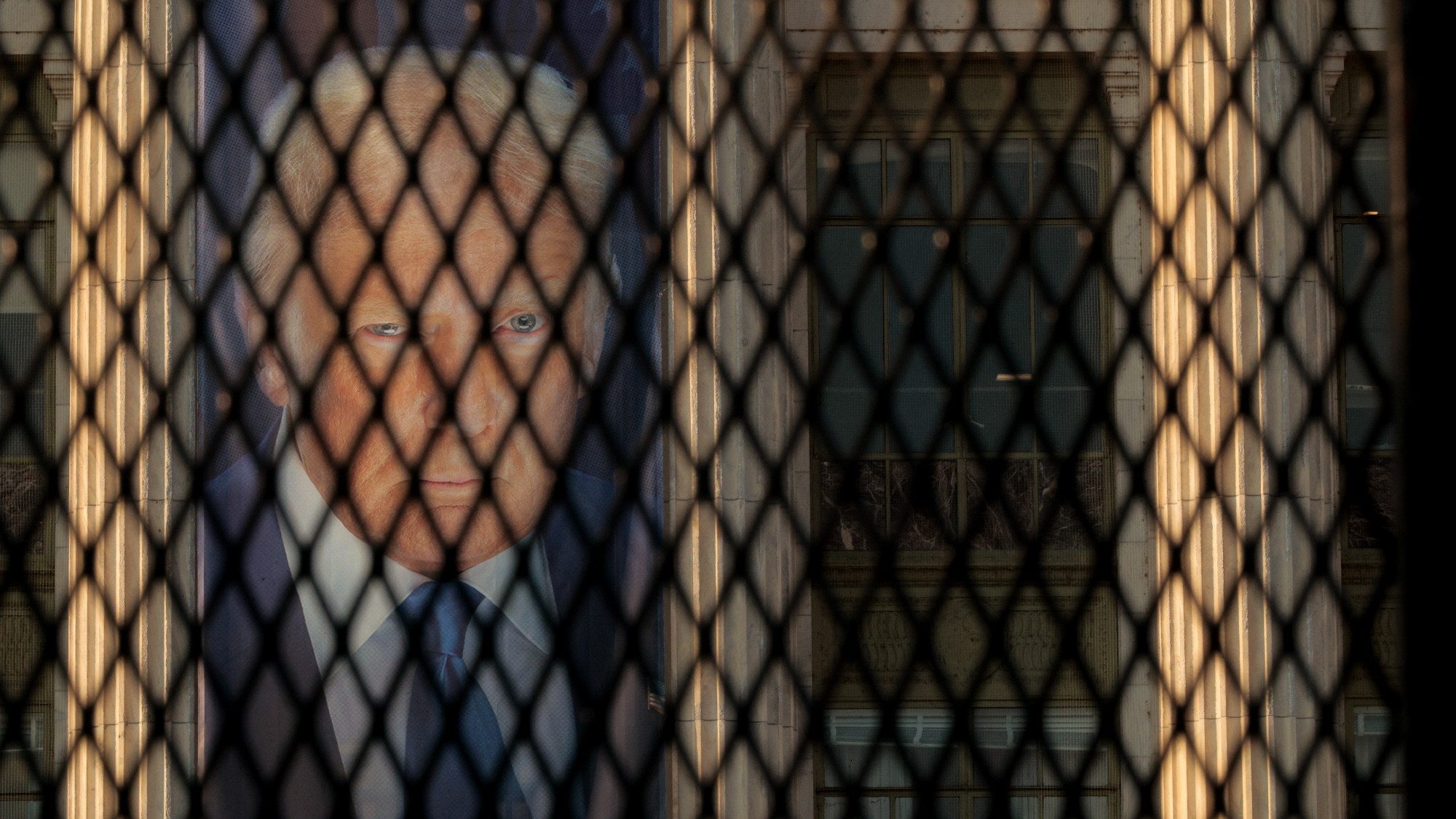Is the US sliding into autocracy?
Donald Trump's use of federal troops on home ground, dismissal of dissent and 'braggadocious' military posturing are all symptoms of a shifting political culture

A free daily email with the biggest news stories of the day – and the best features from TheWeek.com
You are now subscribed
Your newsletter sign-up was successful
Is Donald Trump becoming a dictator, or just enjoying playing the part? It's getting harder to tell, said Susan B. Glasser in The New Yorker. Last weekend, tanks rolled through Washington as the president hosted a huge military parade on his 79th birthday.
The event followed his recent decision to send troops into Los Angeles, against the express wishes of California's Democratic governor, to help quell unrest sparked by his immigration crackdown. Trump and his officials warned that they wouldn't hesitate to send troops into other US cities if needed.
Last Thursday, federal agents handcuffed and forcibly removed one of California's senators, Alex Padilla, after he shouted a question at the Homeland Security chief Kristi Noem at a press conference. In his first term, Trump at least nodded to the idea of bipartisanship. Now, with his talk of the "enemy from within" and dismissal of dissent, he's not even pretending to. "This is the line that has been crossed."
The Week
Escape your echo chamber. Get the facts behind the news, plus analysis from multiple perspectives.

Sign up for The Week's Free Newsletters
From our morning news briefing to a weekly Good News Newsletter, get the best of The Week delivered directly to your inbox.
From our morning news briefing to a weekly Good News Newsletter, get the best of The Week delivered directly to your inbox.
Take all the warnings about America's slide into autocracy with a pinch of salt, said Gerard Baker in The Times. Does Trump enjoy posing as a "tough-on-crime leader"? Of course. But the fact remains that the levels of illegal immigration were allowed to run out of control under President Biden, and it's the federal government's job to police the system. Trump has acted within the law, agreed Rich Lowry in National Review. Removing illegal aliens and deploying troops to protect federal personnel and property in Los Angeles does not make America a police state.
Trump is hardly the first US president to deploy troops on the home front, said Peggy Noonan in The Wall Street Journal. Others, though, have done so reluctantly and have been careful to explain their reasons to the public in measured tones. Trump, by contrast, acted as though he couldn't wait to start busting rioters' heads. "When they spit, we hit," he proclaimed. American presidents don't do that. Nor do they hold "braggadocious" military parades – they leave such things to smaller, more insecure nations.
Nor, as Trump did last week at Fort Bragg in North Carolina, do they give highly partisan speeches in front of cheering uniformed troops. "You think this crowd would have showed up for Biden?" he cried, to elicit boos from the audience. Previous leaders knew better than to put members of the military in a position where they could be seen to be showing allegiance to a particular individual or party. America doesn't do those things, and it doesn't do them for good reasons.
A free daily email with the biggest news stories of the day – and the best features from TheWeek.com
-
 How the FCC’s ‘equal time’ rule works
How the FCC’s ‘equal time’ rule worksIn the Spotlight The law is at the heart of the Colbert-CBS conflict
-
 What is the endgame in the DHS shutdown?
What is the endgame in the DHS shutdown?Today’s Big Question Democrats want to rein in ICE’s immigration crackdown
-
 ‘Poor time management isn’t just an inconvenience’
‘Poor time management isn’t just an inconvenience’Instant Opinion Opinion, comment and editorials of the day
-
 Witkoff and Kushner tackle Ukraine, Iran in Geneva
Witkoff and Kushner tackle Ukraine, Iran in GenevaSpeed Read Steve Witkoff and Jared Kushner held negotiations aimed at securing a nuclear deal with Iran and an end to Russia’s war in Ukraine
-
 Kurt Olsen: Trump’s ‘Stop the Steal’ lawyer playing a major White House role
Kurt Olsen: Trump’s ‘Stop the Steal’ lawyer playing a major White House roleIn the Spotlight Olsen reportedly has access to significant US intelligence
-
 Trump’s EPA kills legal basis for federal climate policy
Trump’s EPA kills legal basis for federal climate policySpeed Read The government’s authority to regulate several planet-warming pollutants has been repealed
-
 House votes to end Trump’s Canada tariffs
House votes to end Trump’s Canada tariffsSpeed Read Six Republicans joined with Democrats to repeal the president’s tariffs
-
 Bondi, Democrats clash over Epstein in hearing
Bondi, Democrats clash over Epstein in hearingSpeed Read Attorney General Pam Bondi ignored survivors of convicted sex offender Jeffrey Epstein and demanded that Democrats apologize to Trump
-
 Judge blocks Trump suit for Michigan voter rolls
Judge blocks Trump suit for Michigan voter rollsSpeed Read A Trump-appointed federal judge rejected the administration’s demand for voters’ personal data
-
 US to send 200 troops to Nigeria to train army
US to send 200 troops to Nigeria to train armySpeed Read Trump has accused the West African government of failing to protect Christians from terrorist attacks
-
 Grand jury rejects charging 6 Democrats for ‘orders’ video
Grand jury rejects charging 6 Democrats for ‘orders’ videoSpeed Read The jury refused to indict Democratic lawmakers for a video in which they urged military members to resist illegal orders